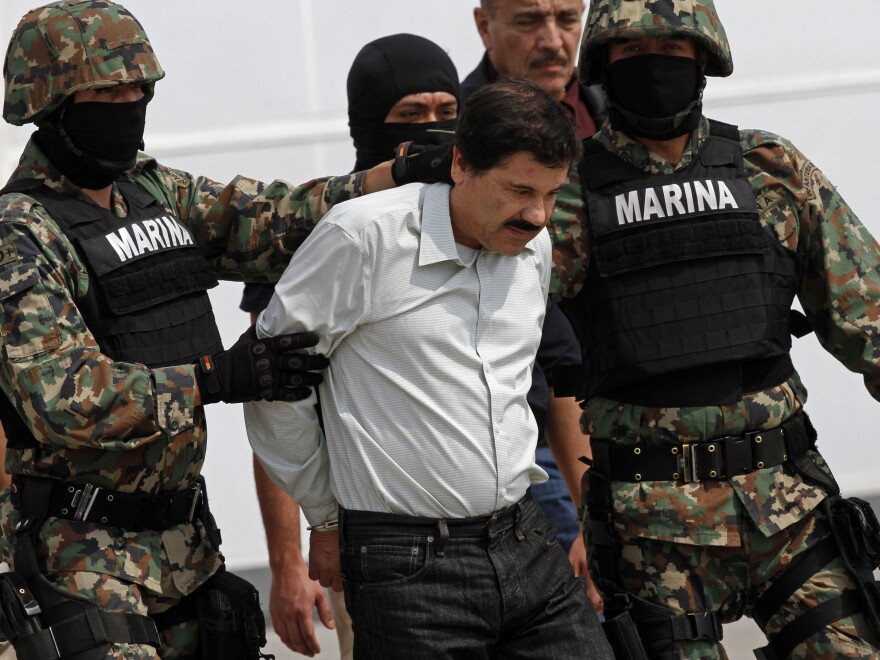Drug kingpin Joaquin Guzman is one of the major villains in Chicago's heroin epidemic, and his recent arrest in Mexico is sparking a debate over how the city's drug trade will be affected.
Chicago is the heroin hub for the Midwest, with cartels often using stash houses in quiet, residential neighborhoods. Last fall, for example, Chicago police raided a cute, quaint two-story house on the southwest side of the city and allegedly seized about $10 million worth of heroin.
"I mean, they don't want to have a large police presence where there's a lot of shootings or gang activity where there's gonna be a heightened sense of police awareness — more cars stopped, more people gone after — so they gravitate to that quieter neighborhood and they like to hide within the regular hardworking citizens," says Chicago Police Chief Nick Roti, who heads the organized crime investigative unit.
The drugs stored in these stash houses will likely end up heading north to Milwaukee or east to Detroit or south to Indianapolis — or they might just stay in Chicago.

Chicago's West Side is home to a large number of the open-air drug markets. Kathie Kane-Willis heads the Illinois Consortium on Drug Policy at Roosevelt University and lives just a few blocks a major open-air drug market in the West Side neighborhood of Humboldt Park.
"It's not like there's a sign that says 'Here's the open-air drug market' and you can just drive right up, but if you know what you're looking for and the people who are engaging in the open-air drug market are looking for customers, it's pretty easy to make that contact without any even verbal communication," Kane-Willis says.
It's drug corners like this where Guzman is said to have left the biggest scar. Authorities blame his cartel for a rise in turf battles and bloodshed.
Kane-Willis doesn't think Guzman's arrest will make much difference.
"I think that the infrastructure on the ground is still significantly in place and that Guzman was on the run for some time, and so I don't think that there's going to be any disruption in the supply," she says.
But that's not how former Assistant U.S. Attorney Jeff Cramer sees it.
"In the Chicago drug trade, his impact is immense. We see the violence in Chicago and the nexus of that invariably is drugs and his organization in Mexico is involved in all that," Cramer says. "So in some way, shape or form, a disproportionate amount of drugs that make its way to the streets of Chicago has touched his organization."
Up next for Guzman is what will likely be a lengthy extradition process. If he leaves Mexican soil, U.S. attorneys will likely be lining up in hopes of being the first to take him to court.
Copyright 2014 WBEZ


